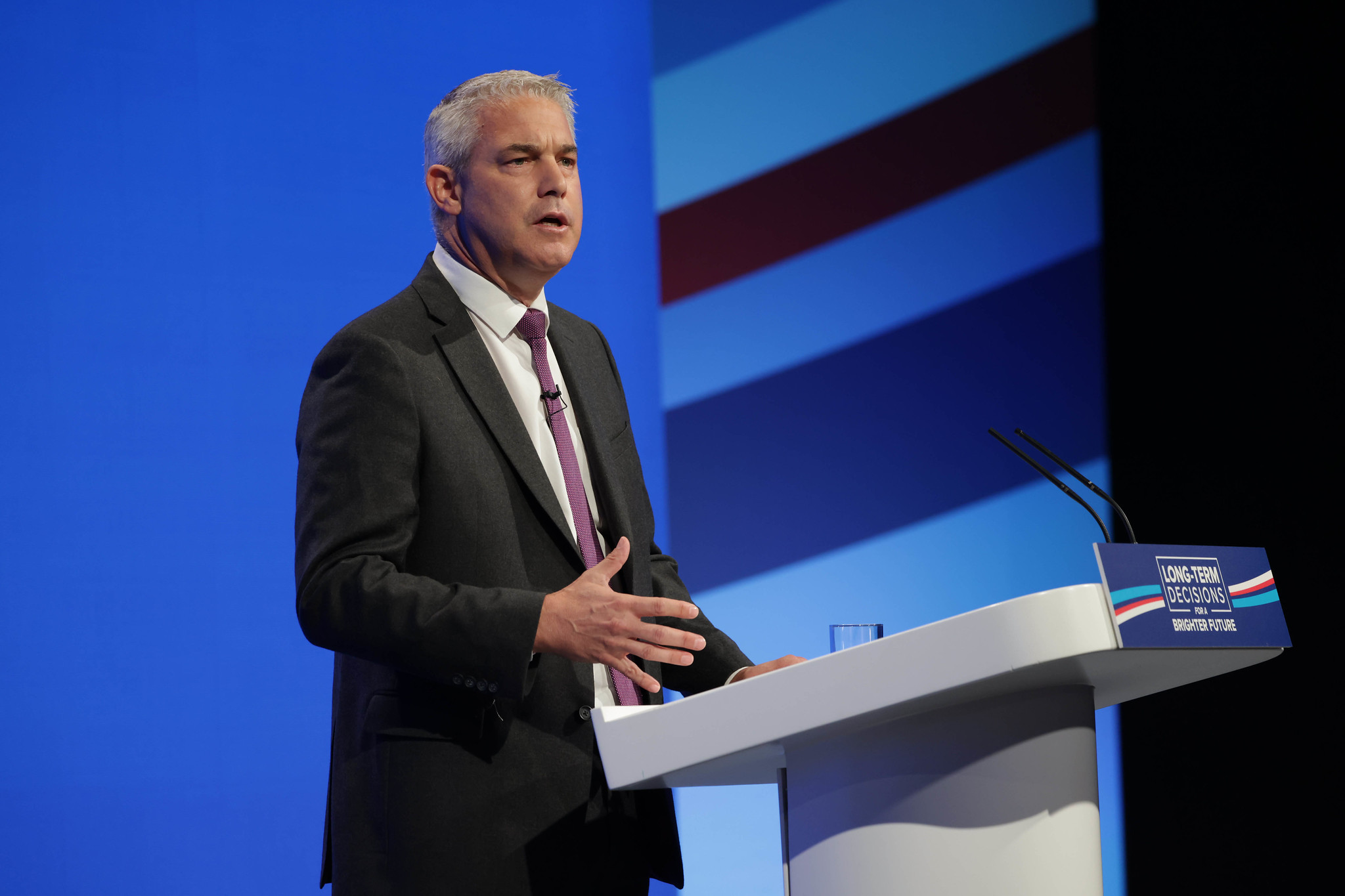
05 Oct Ready for an election? The Conservatives are and they are not hiding the NHS from the fight

Steve Barclay addresses Conservative Party Conference. Picture by Martyn Wheatley CCHQ / Parsons Media. Licensed under creative commons.
In our latest blog, OVID Health Partner, Roudie Shafie, reports back on a Conservative Party Conference which set the scene for the upcoming election fight.
The Conservative Party Conference in Manchester this week was a much chirpier affair than last year, when the atmosphere was on a par with a funeral. This year the halls and bars were filled with plotters rather than mournful drinkers, with the optimists putting in the hours to network and the pessimists already vying for the soul of the party after a general election defeat. This division within the party was made all the more pronounced by the absence of many MPs; those stepping down or in safe seats either skipped the whole event or made only brief appearances.
But as always with a Government’s party conference, the action is not in the halls but on the fringes. A distinct theme emerged from the policy panels and interviews in health. From Ministers to Special Advisors – past and present – the Conservatives have run out of new ideas. After 13 years in Government, the problems are too big, too deep and too political. They’ve looked under the hood and seen the forces of demography, epidemiology, technology and cost change. Too big to fail, too complicated and expensive to fix but also too political to risk transformation.
As a perfect example of this, an exciting fringe sponsored by Alzheimer’s Research UK on the diagnostic revolution needed to realise the potential and value of new treatments, was dominated by the lack of workforce or capital infrastructure in diagnostics. Another fringe saw Steve Barclay emphasising the role of AI and tech in improving access to healthcare by freeing up the workforce but acknowledging the pressures on capital budgets in the system. The theme of workforce challenges was pervasive in its own right: a one-hour fringe event titled “Hire, Train, Retain: Future-proofing the NHS workforce” simply concluded that retention should be the focus. In a similar vein, efforts to advance “prevention” as a policy area failed to take hold, despite Lord Bethell’s enthusiasm for new blood tests and vaccines. Blairite consumer choice narratives, resurrected by Dr Ben Spencer at the “Levelling Up Healthcare: Exploring the challenges of access to healthcare services” fringe event, also received a lacklustre reception; it turns out the appetite for ‘shopping around’ for healthcare services is not what it used to be.
In the main hall the Health Secretary doubled down on the patients vs. the system theme. Polling behind Labour on the NHS is not surprising to anyone in the party, nonetheless the Government is not shying away from politicising the NHS. Seasoned advisors like myself might have recommended the “heads down and don’t do a Lansley” approach, but it seems that the Secretary of State preferred to join the GE24 “divide and conquer” game plan by landing the NHS straight in the middle of the culture wars on trans rights. The Prime Minister was half taking this advice. He announced a ban on smoking as “sensible policy” and framed the ban on children vaping as a moralistic crusade. Not so much public health as common-sense interventions.
Beyond the fringe discussions and set piece speeches, there is one question I am mulling over for our clients and for patients in the UK. The next general election is not the foregone conclusion some commentators would like it to be, but what is clear is that increasingly the Conservative party is pulling to the right. What does this mean for health policy come 2025? Individual restrictions for the sake public health can survive, but will the unspoken cross party policy consensus on what the NHS needs to do to survive (technology, workforce, localise and integrate) hold together? Or will the temptation to deepen a political divide into policy divide prevail? The answer will lie in the clues scattered throughout 2024 as the general election campaign and the fallout from its result plays out.